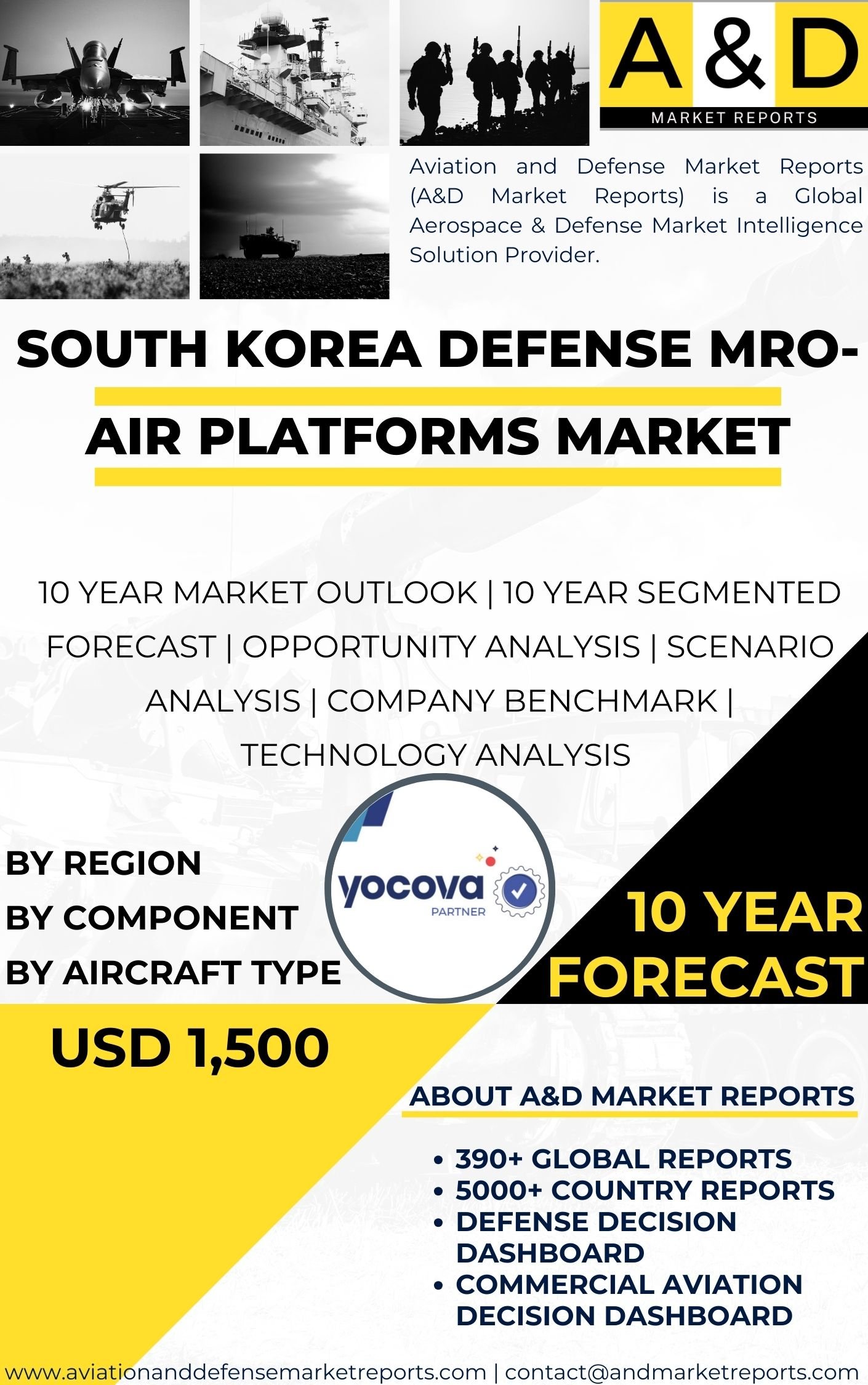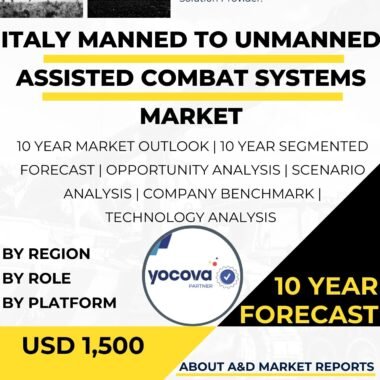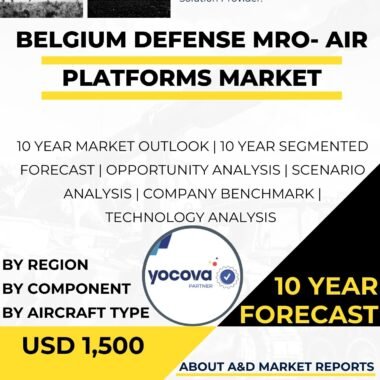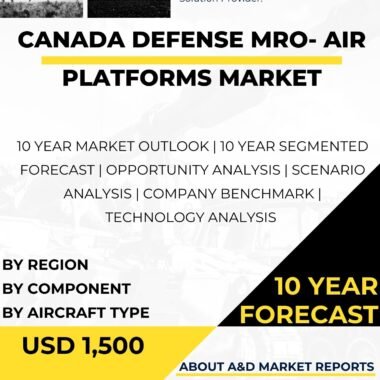Description
South Korea Defense MRO – Air Platforms Market Overview
The Defense MRO- Air Platforms plays a vital role in the country’s defense sector. MRO services keep military aircraft ready for missions. These services support fighter jets, helicopters, and unmanned aerial vehicles. Reliable MRO ensures safety, performance, and long service life.
Evolution of the South Korea Defense MRO – Air Platforms Market
The South Korea defense MRO – air platforms market developed alongside military modernization. As air fleets expanded, maintenance needs increased. Strong MRO support became essential for sustained air power.
Current Landscape of the South Korea Defense MRO – Air Platforms Market
The South Korea defense MRO – air platforms market has grown steadily in recent years. It covers a wide range of services across defense air assets.
Key MRO Services for Air Platforms
-
Airframe maintenance
-
Engine repair and overhaul
-
Avionics upgrades
-
Component inspection and replacement
These services support platforms operated by the South Korean Air Force and defense agencies.
Growth Drivers in the South Korea Defense MRO – Air Platforms Market
Several factors continue to drive market growth.
Focus on Domestic MRO Capabilities
South Korea prioritizes local defense support. Government programs promote domestic MRO development. This reduces reliance on foreign service providers.
Rising Complexity of Military Aircraft
Modern aircraft use advanced systems. These platforms require frequent and skilled maintenance. MRO services help manage long-term operating costs.
Strategic Security Environment
South Korea operates in a sensitive regional setting. High aircraft availability is critical. Strong MRO infrastructure ensures combat readiness.
Manufacturing and Engineering Strength
The South Korea defense MRO – air platforms market benefits from advanced engineering skills. The country has a strong aerospace industry. Precision manufacturing supports complex repair tasks.
Strategic Partnerships in the South Korea Defense MRO – Air Platforms Market
South Korean firms collaborate with international OEMs and MRO providers. These partnerships enable technology transfer. They also improve maintenance standards and efficiency.
Challenges in the South Korea Defense MRO – Air Platforms Market
Despite growth, the market faces several challenges.
Need for Continuous Technology Upgrades
Aircraft technology evolves rapidly. MRO providers must adapt quickly. This requires constant training and investment.
Competitive Market Pressure
International MRO companies offer advanced services. Local providers must focus on specialization to compete.
Skilled Workforce Shortage
Defense MRO requires trained technicians and engineers. Limited skilled labor can restrict service capacity.
Future Outlook of the South Korea Defense MRO – Air Platforms Market
The South Korea defense MRO – air platforms market shows strong future potential. Government support will remain steady. Investment in infrastructure and training will boost growth.
Role of Government Support
Public funding strengthens MRO facilities. Research programs improve maintenance methods. Procurement policies encourage local MRO usage.
Conclusion
The South Korea defense MRO – air platforms market is essential for military readiness and air fleet sustainability. Growth comes from domestic capability development, rising aircraft complexity, and security needs. Challenges remain in skills, competition, and technology updates. Continued investment, partnerships, and workforce development will ensure long-term success and strengthen South Korea’s defense aviation capabilities.




